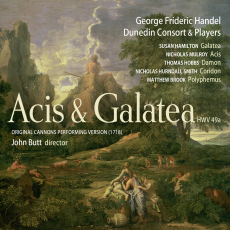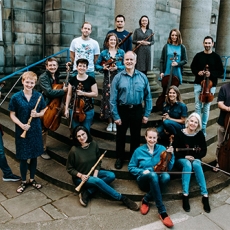Handel's Acis & Galatea - Dunedin Consort - BBC Music Magazine
Handel himself performed his masque in various ways at various times. John Butt and his period-instrument ensemble revert to its initial form, when it was written for Handel's wealthy patron, the Earl of Carnarvon, at Cannons, his palatial home in Middlesex where the composer was resident in 1717-18. Larger-scale editions can also work, but there is a special charm in hearing the piece performed by just five singers, who also combine to form the chorus, plus a small instrumental ensemble.
Its narrative about the love between the shepherd Acis and the nymph Galatea, rudely interrupted when the giant Polyphemus hurls a rock at the former and kills him, is couched in the genre of the pastoral. Handel responds with some of his loveliest melodies and a choice part for the bass as the comic-grotesque rival for Galatea's affections. Even by Handel's standards, the results are unusually delightful.
The chief strength of this account lies in the excellent instrumental playing (the recorders that form the ‘warbling choir' addressed in Galatea's first aria are sheer magic) and in Butt's careful attention to tempo. The singing is generally good, though Susan Hamilton's Galatea has an unfortunate habit of starting phrases with blanched tone before moving into full voice. Nicholas Mulroy's Acis and Thomas Hobbs' Damon are both athletic, but compared to Matthew Brook's rumbustious Polyphemus the other characterisations sound wan.

